Grape vinegar flew off the shelves, and your salad’s screaming for a tangy twist? No sweat!
We’ve all been in that pickle – ready to whip up a storm in the kitchen, only to find the star ingredient playing hide and seek. Good news, though.
Mother Nature’s pantry is bursting with zesty alternatives that’ll rescue your dish, and possibly make it even more awesome.
In this guide, we’ll uncover five knockout subs for grape vinegar that’ll have your dishes singing with flavor.
Trust me, your salads won’t know what hit ’em.
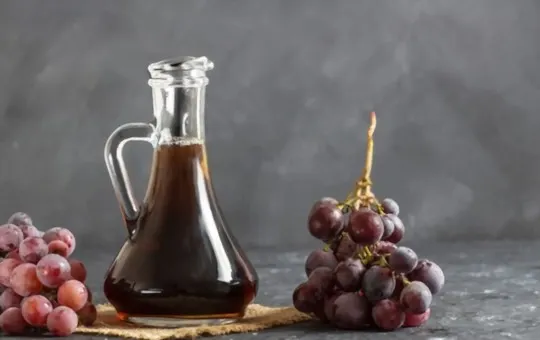
The 5 Best Substitutes for Grape Vinegar
If you’re out of grape vinegar or can’t find it at your local grocery store, don’t worry.
There are plenty of substitutes that will work just as well in your recipe.
Here are the 5 best substitutes for grape vinegar:
1 – Red Wine Vinegar
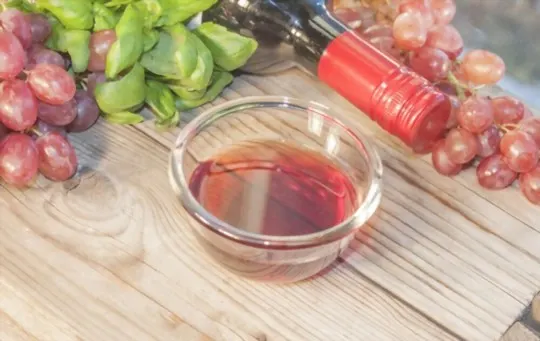
Red wine vinegar is a type of vinegar made from red wine.
It has a tart, acidic flavor that can add dimension to a dish.
Red wine vinegar is also relatively inexpensive and easy to find in most supermarkets.
In terms of taste and texture, red wine vinegar is similar to grape vinegar.
However, it has a slightly deeper and more complex flavor.
Additionally, red wine vinegar is usually a bit more viscous than grape vinegar.
This means that it can be a great substitution for grape vinegar in recipes, calling for a thicker liquid.
To substitute red wine vinegar for grape vinegar, simply use an equal amount of vinegar.
For example, if a recipe calls for 1 cup of grape vinegar, you would use 1 cup of red wine vinegar instead.
Keep in mind that the flavor of your dish may be slightly different with this substitution.
2 – White Wine Vinegar
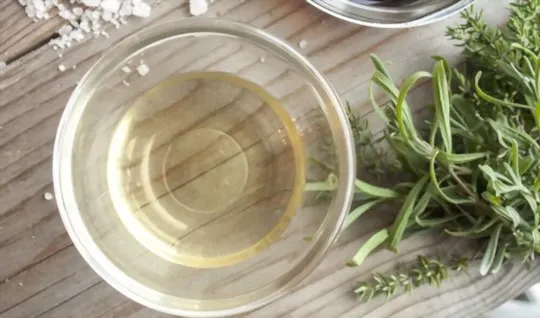
White wine vinegar is a type of vinegar that is made from white wine.
It has a light, slightly floral taste, and a thin, watery texture.
It is most commonly used in salads and as a pickling agent, but it can also be used in place of grape vinegar in many recipes.
When substituting white wine vinegar for grape vinegar, it is important to remember that it is not as strong as grape vinegar, so you may need to use more of it to achieve the desired flavor.
Additionally, white wine vinegar will not add the same color to your dish as grape vinegar, so if you are looking for a white or pale-colored sauce or dressing, white wine vinegar is a good choice.
3 – Champagne Vinegar
Champagne vinegar is a type of vinegar made from champagne.
It has a light, fruity flavor with a slightly acidic taste.
The texture of champagne vinegar is thin and watery.
Champagne vinegar can be used as a substitute for grape vinegar in recipes.
It can also be used to add flavor to salads and other dishes.
To use champagne vinegar, simply substitute it for the grape vinegar called for in a recipe.
You may need to adjust the amount of vinegar used depending on the strength of the champagne vinegar.
4 – Rice Vinegar
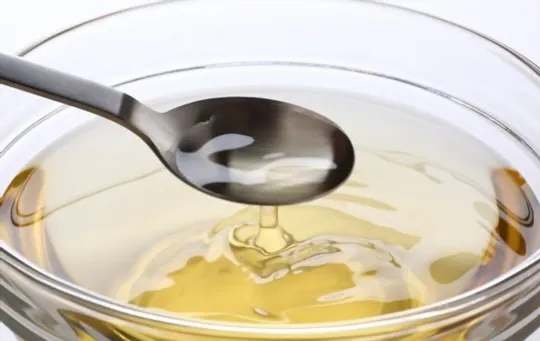
Rice vinegar is a type of vinegar made from fermented rice.
It is often used in Asian cooking, as well as in salad dressings and pickling recipes.
Rice vinegar has a light, mild flavor and a slightly sweet taste.
It is also less acidic than other types of vinegar.
The texture of rice vinegar can vary depending on the type of rice used to make it.
For example, brown rice vinegar is typically darker and thicker than white rice vinegar.
Rice vinegar can be substituted for grape vinegar in many recipes.
When substituting rice vinegar for grape vinegar, it is important to remember that it is less acidic, so you may need to add a little extra acidity to the recipe in order to achieve the desired flavor.
5 – Apple Cider Vinegar
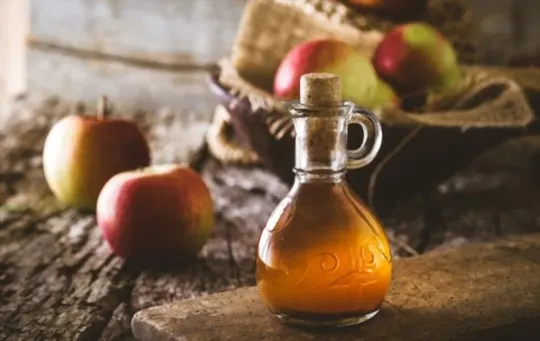
Apple cider vinegar is a type of vinegar made from apple cider that has been fermented.
It is typically pale to medium amber in color and has a distinctly sour, tart flavor.
Apple cider vinegar can be used in much the same way as other types of vinegar, such as grape vinegar.
It can be used for pickling or as a dressing or marinade. It can also be used as a natural cleaning agent.
When substituting apple cider vinegar for grape vinegar, use a 1:1 ratio.

Leave a comment